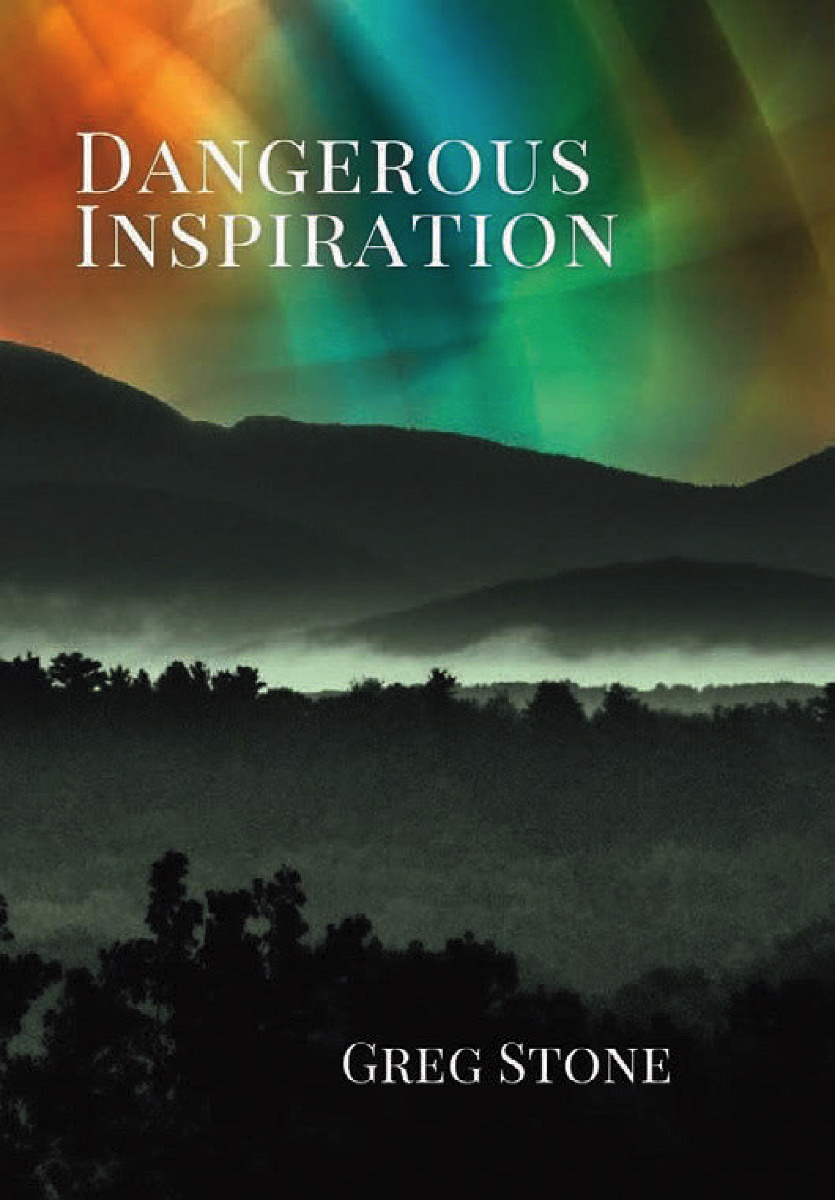Greg Stone ’75 was in a hospital bed four years ago when the idea came to him for the murder mystery he’d always wanted to write. After a major back surgery, complications had landed him in the ICU, where he spent a week recovering in a medicated haze, slipping in and out of consciousness. Whenever he was awake, he read. “And for some unknown reason,” he says, “I was rereading Crime and Punishment.” In the book, Dostoyevsky’s protagonist Raskolnikov “is feverish and delirious.” Stone felt the same. In his delirium, he half dreamed, half invented the plot of a novel. As soon as he got home, he started putting words down on paper, an effort that led, eventually, to Dangerous Inspiration, a pulpy noir published in 2023.

It’s the first novel for Stone, a former magazine and television journalist who was an English concentrator in the College (with an unofficial minor in comparative literature). Since 1989, he’s run his own media consulting firm, Stone Communications, based in Belmont, Massachusetts; his two previous books were on marketing. Dangerous Inspiration centers on a former police detective named Ronan Mezini, whose aspiration to become a novelist leads him to an artists’ colony in rural Vermont, where he’s joined by a collection of odd artistic peers. Almost as soon as the group arrives, a Nor’easter blows in, and not long after that, bodies begin turning up: first a sous chef, then a sculptor, then a young man from a nearby dairy farm. As the murders accumulate, Mezini races to find the killer, and in the process, everyone’s darkest secrets—including his own—are revealed.
Stone emphasizes that Mezini isn’t meant to be autobiographical, but he and his protagonist do share a few characteristics: long-simmering literary ambitions, family roots in Italy and Albania, and deep ties to Cambridge (college for Stone, who grew up in New Jersey; and childhood for Mezini). Both men also have synesthesia, a perceptual phenomenon that causes sensory crossovers in the brain. People with this condition might “taste” sights, or “smell” music, or hear a certain sound when they touch an object with their hands. Mezini’s form of synesthesia transforms sounds into colors, and these visions sometimes help guide his investigations. For Stone, the phenomenon is arithmetic, “which means I see numbers as a ladder, extending horizontally forwards and backwards, into infinity,” he says. “I also see days of the week and months of the year that way.” But unlike Mezini, he hasn’t been able to put it to much practical use. “My wife will tell you I’m still helpless without my calendar.”
A year after publishing Dangerous Inspiration, Stone is at work on two other Mezini novels for his publisher, Paper Angel Press. One, already written and now in revisions, is a prequel called Deadline on Arrival. “It has to do with the news business,” Stone says, “something near and dear to my heart.” That’s actually the book Stone initially dreamed up during his stay in the ICU; as soon as he got home from the hospital, he wrote a first draft, but then set it aside to work on Dangerous Inspiration. Now he’s turned back to it. At 70 years old, he says, his fiction career is finally taking off. “I always told myself, these books are not going to write themselves,” he says. “You just have to sit down and do it. You have to write when you’re depressed, and you have to write when you’re tired.” On a good day, he might crank out 2,000 words. “On a bad day, I might write nothing and just sit there and stare into space. But that’s a form of writing, too. And it’s work that feels good.”









